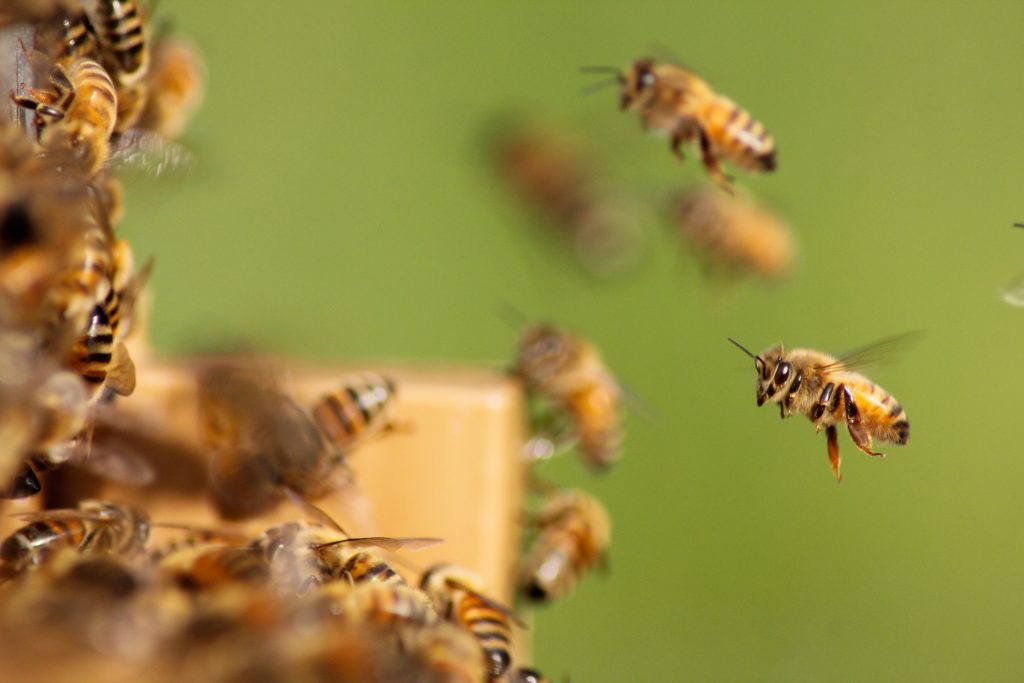Summer is here, which means a sting from a bee, hornet, wasp, or fire ant is more likely to occur while enjoying outdoor activities. In this blog, we’ll explore what to look out for if you do get stung and how to treat it. It is important to keep in mind that you can still experience a mild reaction when stung but it doesn’t always mean you are allergic. Knowing the difference, along with the symptoms of an allergic reaction, is imperative to determine what steps to take next.
An allergic reaction to a stinging insect may include:
• Pain and Redness
• Swelling beyond the affected area including the face, throat or tongue
• Difficulty breathing
• Dizziness
• Stomach Cramps
• Nausea
• Itchiness and hives over large areas of the body
A basic way to treat a sting includes applying a cold compress, to reduce swelling and pain, along with the use of a topical ointment to relieve itching. If symptoms are worse than redness and swelling at the sight of the insect sting, it is important to seek medical attention immediately as you may be experiencing an allergic reaction.
A fire ant sting is a bit different because it usually happens by many ants at once and the risk of infection is higher. Almost everyone stung by fire ants develops an itchy hive or lump at the site of the sting, which usually goes down within 30 minutes to an hour. This is followed by a small blister within eight to 24 hours and can become infected if scratched or opened.
Insect stings can also cause symptoms that are not considered an allergic reaction called a toxic reaction or serum sickness. A toxic reaction takes place when the insect venom acts as a poison in the body and causes symptoms such as nausea, fever, swelling, and more. Serum sickness is an unusual reaction to a foreign substance in the body that can cause similar symptoms hours or days after the sting. Visiting a board-certified allergist is the best way to differentiate an allergy from one of these reactions.
Now that we have covered symptoms, here are five ways that you can prevent stings from happening while enjoying these last weeks of summer.
- Avoid wearing sandals or walking barefoot in the grass.
- Do not drink from open beverage cans. Stinging insects will crawl inside a can attracted by the sweet beverage.
- Avoid brightly colored clothing and perfume when outdoors. Many stinging insects are searching for food and could confuse you with a flower.
- Insects are most likely to sting if their homes are disturbed, so have hives and nests around your home destroyed. This activity can be dangerous, you should hire a trained professional.
- Don’t swat at a flying insect. Gently brush it aside or patiently wait for it to leave. This action might make them feel threatened.
Insect sting awareness and treatment is necessary for your wellbeing and crucial to prevent further concerns. A board-certified allergist will help you verify your diagnosis and determine the best treatment plan. Immunotherapy (allergy shots) may be one of the treatment options decided on by you and your allergist as an effective long-term plan. If you think you may be allergic to an insect sting, schedule an appointment with one of AllergySA’s experienced physicians by calling 210-616-0882. If possible, bring in the dead insect to help the doctor determine your exact allergy.
Share this entry
-
Share on Facebook
Share on Facebook
-
Share on Twitter
Share on Twitter
-
Share on WhatsApp
Share on WhatsApp
-
Share on Pinterest
Share on Pinterest
-
Share on LinkedIn
Share on LinkedIn
-
Share on Tumblr
Share on Tumblr
-
Share on Vk
Share on Vk
-
Share on Reddit
Share on Reddit
-
Share by Mail
Share by Mail



